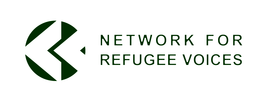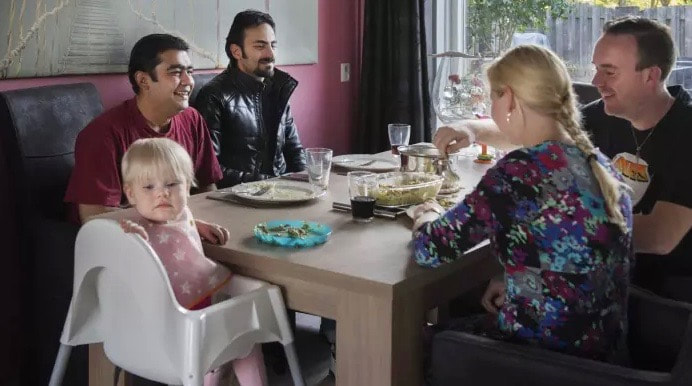|
Mohammed Badran, Member of The Network for Refugee Voices Sometimes, while walking the halls of Amsterdam university, I have to stop and ask myself, “how did I get here?” Five years ago, at the age of 19, I found myself alongside 500 other refugees in a crowded port in Egypt — a long way, physically and emotionally, from beautiful old Damascus, my home. As I boarded a boat I remember the faces of the locals watching the send-off, their looks not of sympathy but of disdain. That was the first time I felt defined by my refugee status. It has since inspired my work to change the way refugees are perceived. Today, a global network of refugees who want their voices to be heard and to play a role in shaping their own futures is emerging. I am a Palestinian-Syrian, a founder of the refugee-led network Syrian Youth Volunteers in the Netherlands (SYVNL) and a member of the Network for Refugee Voices. I am a student and an entrepreneur. I am also a refugee. My journey to “earn” this status has been long. After attempting to travel by sea, I was detained for over a month in an Egyptian prison. When I finally arrived in the Netherlands, I was eager to find a community and a home away from home. Through my university, I met other young Syrian refugees who had endured journeys like mine. We started to meet to discuss our experiences and realised we shared a common yearning: we all felt the need to act and not merely to be the passive objects of other people’s policies. And so SYVNL was born, with the help of refugees and Dutch volunteers. Being a refugee is my experience, not my identity. We are called refugees because we have had to flee war or persecution, but we experience this label as paradox. It is true that we fled our homes in need of protection. Many of us are still going through a lot as we adjust to new environments while dealing with trauma. But all too often we are perceived as passive. And this undermines our agency, our capacity to build new lives, to develop ourselves as individuals and to contribute to the new communities that host us. People regularly ask me what they can do to help refugees. Though well intentioned, this question is problematic because it reinforces the perception that we are helpless victims and mere recipients of aid. What they should be asking is how can they help refugees to help themselves. We need a movement to make the refugee response system participatory and bottom-up — one that sees us for who we are: farmers, students, doctors and engineers, risk-takers who used all their ingenuity to escape war and oppression. To really help refugees be self-reliant they must be listened to and given the chance to participate. Some of the most innovative work in this area is being spearheaded by refugees themselves. SYVNL and the Network for Refugee Voices are two of nine refugee-led networks that are organising the first Global Summit of Refugees in Geneva this week. With support from Independent Diplomat and the Refugee Council of Australia, the summit will bring together more than 80 refugee leaders from six continents to launch an international refugee-led network. We want to connect refugees with each other, as well as host communities, municipal and national governments and international organisations. We want to be part of the solution. We have the experience; we know what works. We want to shoulder our own responsibilities and design effective refugee policies that will benefit everyone, whether at the UN or in local neighbourhoods. The current refugee response is not only failing host communities and taxpayers in donor countries, it is also failing us — the refugees. Mohammed Badran is founder and director of Syrian Volunteers in the Netherlands. Full Article
1 Comment
9/21/2022 12:47:14 pm
Thanks so much for clearing up how asking how to help refugees can be harmful. Since to war in Ukraine, my partner and I have been wanting to get more involved in refugee relief and we want to be as respectful as possible. Your sharing your own experience is a huge help in getting us to understand your point of view.
Reply
Leave a Reply. |


